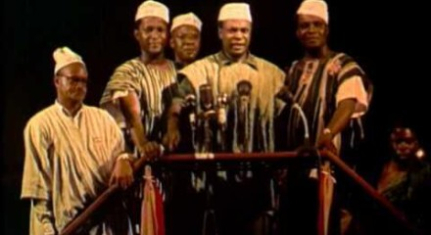On 6 March 1957, the Gold Coast (now known as Ghana) gained independence from Britain.
Ghana became a member of the Commonwealth of Nations and was led to independence by Kwame Nkrumah who transformed the country into a republic, with himself as president for life. The country was the first to gain independence from European colonialism.
The colonial masters who colonized Gold Coast included the Portuguese who were the first to settle in 1471, Dutch, Danes, French, the English (British ), the Swedes.
Before the Gold Coast was colonised, Ghana was made up of a number of independent kingdoms, including Gonja and Dagomba in the north, Ashanti in the interior, and the Fanti states along the coast.
Colonization of Gold Coast begun when Europeans countries were attracted to the Coast by gold, ivory, timber and spices. After chronology of events, Portuguese sold all their holdings including Elmina Castle for 10,000 pounds to the British in 1824, then in 1872, the Dutch lost interest in the coast and ceded their Forts free to the British.

The British tried to dominate the trade along the coast but the Ashanti in the Coastal region threatened their interest. In 1824, the powerful king of the Ashantis, Osei Bonsu, whose territory extended beyond present Ghana died. The British sort for a chance to break Asante control of gold coast trade and first Anglo Asante war broke out.Â
Great Britain gradually conquered the Ashanti Kingdom between 1896 and 1910, made Ashanti and the northern part protectorates. This in effect gave them total control.
READ ALSO:62nd Independence: Tamale ready to host anniversary (Photos)
The cheating and arrogance of the colonial rulers became very offensive. High positions were reserved for Whitemen while Ghanaians became labourers. They had the ruling class attitude, young District Commissioners (DC) showed no respect to the old chiefs.
The turning point of the Gold coasters was the return of Kwame Nkrumah in 1947 after twelve years of study and radical politics in the USA and Britain.
Nkrumah was invited back to the Gold Coast to become general secretary of the United Gold Coast Convention, an organization which campaigned for self-government.
From January 1950 Nkrumah organized a campaign of non-violent protests and strikes, which landed him in prison. During the colony's first general election, in February 1951, the CPP won convincingly even in the absence of its leader.
Nkrumah was released from prison to join the government. In 1952 he became prime minister of Ghana.
On March 6 1957, Kwame Nkrumah made the Independence Day Declaration in Accra. Together with him on the platform stood Komla Gbedemah, Kojo Botsio, Archie Casely-Hayford, Krobo Edusei and N.A. Welbeck.
Below are excerpts of the declaration by Ghana's first President, Kwame Nkrumah.
Â
At long last, the battle has ended! And thus, Ghana, your beloved country is free forever!
And yet again, I want to take the opportunity to thank the people of this country; the youth, the farmers, the women who have so nobly fought and won the battle.
Also, I want to thank the valiant ex-servicemen who have so cooperated with me in this mighty task of freeing our country from foreign rule and imperialism.
And, as I pointed out… from now on, today, we must change our attitudes and our minds. We must realise that from now on we are no longer a colonial but free and independent people. But also, as I pointed out, that also entails hard work. That new Africa is ready to fight his own battles and show that after all the black man is capable of managing his own affairs.
We are going to demonstrate to the world, to the other nations, that we are prepared to lay our foundation – our own African personality.
We have won the battle and again rededicate ourselves … OUR INDEPENDENCE IS MEANINGLESS UNLESS IT IS LINKED UP WITH THE TOTAL LIBERATION OF AFRICA.
Â
Ghana is the first country in West Africa to attain independence.
The flag of Ghana was designed by Theodosia Salome Okoh.

The red signified those who had died for independence, the gold is the mineral wealth with the green representing the rich grasslands of the area. The black star is the symbol of the people and of African emancipation.





